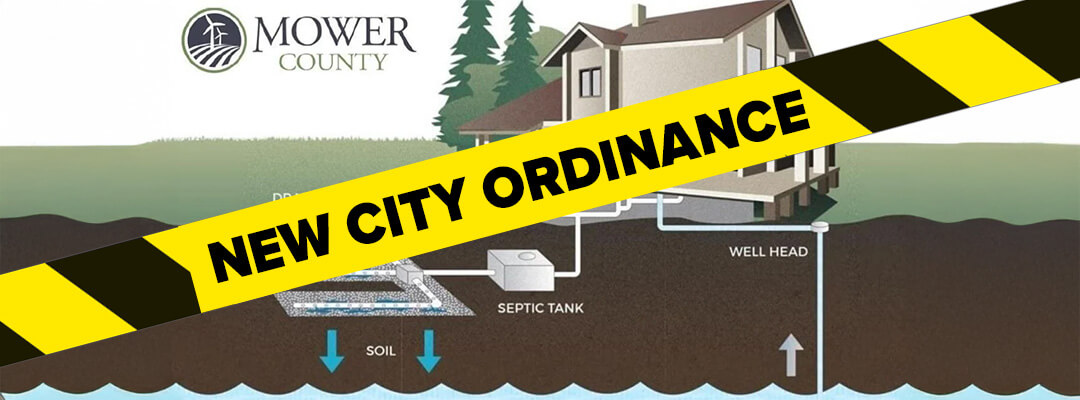Austin Homeowners: Your Guide to Austin’s New Sewer Ordinance for Home Sales

To Austin homeowners,
We want to bring your attention to an important new city ordinance, Section 3.30, Subdivisions 14-15, which initially took effect on April 19, 2025. This rule specifically addresses Inflow/Infiltration (I/I) compliance for properties connected to the public sewer system, and it's particularly relevant if you're considering selling your home or transferring property ownership.
In simple terms, this ordinance is designed to help maintain the efficiency and health of our city's sewer infrastructure. "Inflow and Infiltration" refers to clear water – such as rainwater from sump pumps or groundwater seeping through cracked pipes – that mistakenly enters the sanitary sewer system. When this happens, it can put a significant strain on our city's wastewater treatment facilities and lead to costly issues.
To ensure our system operates effectively, the City of Austin now requires an inspection of your property's sewer connections before a sale or transfer. We've put together this information to help you understand the details of this new requirement in a straightforward way, along with the latest updates from the City Council.
What is Inflow and Infiltration (I/I)?
As mentioned, Inflow and Infiltration (I/I) refers to the unwanted water that enters the sanitary sewer system from sources other than typical household or business wastewater.
- Inflow is stormwater directly entering the sewer through improper connections. This can include things like sump pumps, downspouts, and foundation drains that are incorrectly channeled into the sanitary sewer pipes instead of the stormwater system.
- Infiltration is groundwater seeping into sewer pipes through cracks, leaky joints, or deteriorated pipes. This often occurs in older or damaged sewer lines.
When I/I occurs, it can overload the sanitary sewer system, which is designed to handle wastewater, not large volumes of clear water. This can lead to increased costs for wastewater treatment, reduced efficiency of the system, and even sanitary sewer overflows (SSOs) which can negatively impact the environment and public health.
Key Aspects of the New Ordinance
So, what does this new ordinance mean for you when you're looking to sell or transfer your property? Essentially, it requires you to obtain a Certificate of Inflow/Infiltration (I/I) Compliance if your building is connected to the public sewer. Here’s a closer look at what that involves:
- Required Inspection: Before your property can change hands, it needs an inspection. This check will determine if there are any prohibited discharges (like direct connections of stormwater to the sewer) and if your sump pump, if you have one, is correctly installed. Your existing building sewer line will also be inspected.
- Who Conducts the Inspection? A licensed plumber must perform this inspection. They will examine your sump pump and building sewer, then submit a city-provided inspection form along with a date-stamped video of the sewer line for the city's review and approval.
- Cost Responsibility: All costs for this inspection, carried out by your chosen private plumber, are the responsibility of the property owner.
- Receiving Your Certificate: Once your property is found to be compliant with the city's sewer regulations, a Certificate of I/I Compliance will be issued.
- Validity: This certificate is required for every property transfer. However, the building sewer inspection portion of the certificate is valid for 10 years, meaning it can be reused for future transfers within that timeframe.
- Addressing Non-Compliance: If the inspection reveals your property isn't in compliance, you'll receive written notification. You then have 90 days to complete the necessary corrections. Any work requiring city permits (like plumbing or building permits) will need inspection by the city's services division.
- Selling with a Correction Notice (Conditional Transfer): The city understands that sometimes repairs take time. In certain situations, you might be able to transfer the property even if corrections aren't completed yet:
- New Owner's Agreement: The new owner or their representative must sign an agreement with the city, committing to complete the necessary repairs within 180 days of taking ownership.
- Escrow Requirement: The seller must place funds into an escrow account at closing to cover the estimated repair costs. This amount needs to be 110% of a written estimate from a licensed installer for the required work on the building sewer, drain, or connection. This escrow requirement can be waived if the main structure on the property will be demolished, and the new owner agrees that a new building sewer will be required after reconstruction.
- Disclosure and Responsibility: It's the seller's responsibility to disclose any correction notices to the buyer and all parties involved in the transaction. Importantly, the obligation to fix any non-compliance with the building sewer regulations "runs with the land," meaning both the seller and the buyer are responsible for ensuring the repairs are made. If the repairs aren't completed within one year of the initial inspection, that inspection becomes invalid, and the entire process, including applicable fees, must be restarted.
- Potential Penalties: Properties found to be non-compliant may be subject to a monthly I/I surcharge, as outlined in § 3.30.
Community Perspectives and Ongoing Discussions
While the ordinance aims to address significant infrastructure concerns, it has also prompted discussion and raised questions within the community. Among those actively engaging in this dialogue is Kris Heichel, branch manager at The Heichel Team powered by Fairway Independent Mortgage Corporation.
Kris Heichel has been an outspoken voice, advocating for further review and potential revisions to the ordinance before its full implementation. Her primary concerns, shared by some community members, revolve around three key areas:
- Public Awareness: Ms. Heichel has expressed that the ordinance was passed without what she considers "proper public awareness," suggesting that a more extensive outreach effort would have been beneficial for homeowners to understand the changes.
- Financial Assistance and Appeals Process: She has highlighted a perceived lack of "clear financial assistance or appeals process" for homeowners who may face significant repair costs if their sewer lines fail inspection. The average cost to replace a sewer line, she notes, can range from $6,000 to $15,000 or more, depending on the scope of work.
- Checks and Balances: Ms. Heichel also believes that "the city has not created sufficient checks and balances" within the ordinance's framework.
UPDATE: Ordinance Implementation Delayed to March 2026
In a significant development stemming from community discussions, including feedback heard at the City Council meeting on Monday, July 7, 2025, the implementation of the Point-of-Sale I/I Compliance Ordinance has been delayed.
Austin City Council Member Mike Postma shared an update following the meeting, stating, "I appreciate everyone who has reached out with questions and concerns on the sewer inspection ordinance that the city passed in April. After attending an information meeting with local professionals, and listening to the questions at city council tonight, I made a motion for and voted to delay the start of this ordinance until March 2026." He added, "I’m hopeful this gives time for all of the stakeholders interested in this issue to come together and create a system in place that will work for everyone."
This decision, reported by KAALTV, provides a grace period for the city to address various questions and concerns. Austin City Engineer Steven Lang noted that "An implementation will allow us to develop some frequently asked questions, try to answer some of these questions that we have been getting from realtors and loan agents. So it will give us a little more window to plan and prepare to get this moving off on a better foot."
While the final approval for this delay is pending future council action, if approved, the requirement is anticipated to go into effect on March 1, 2026.
This ordinance represents a significant change for property owners and those involved in real estate transactions within Austin. Understanding its requirements and implications, as well as the ongoing community dialogue surrounding it, is crucial for all affected parties. The Austin Area Chamber of Commerce aims to keep our community informed on important developments that impact local businesses and residents.











